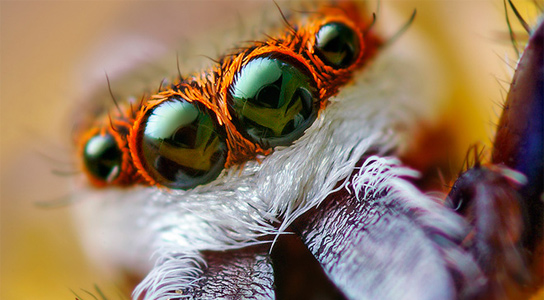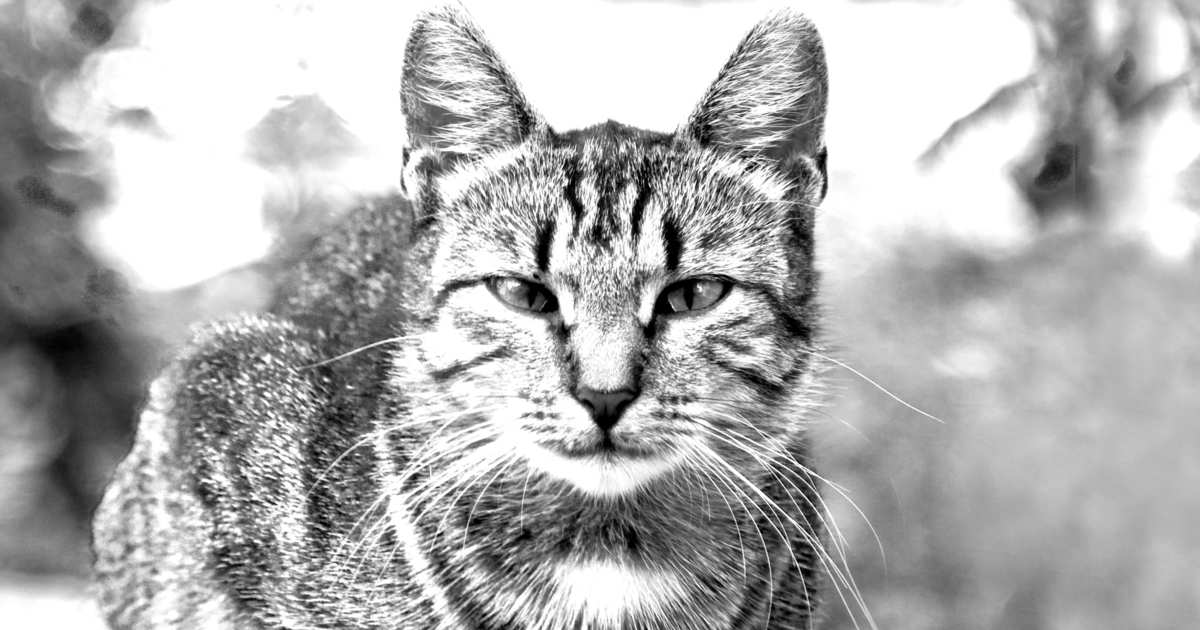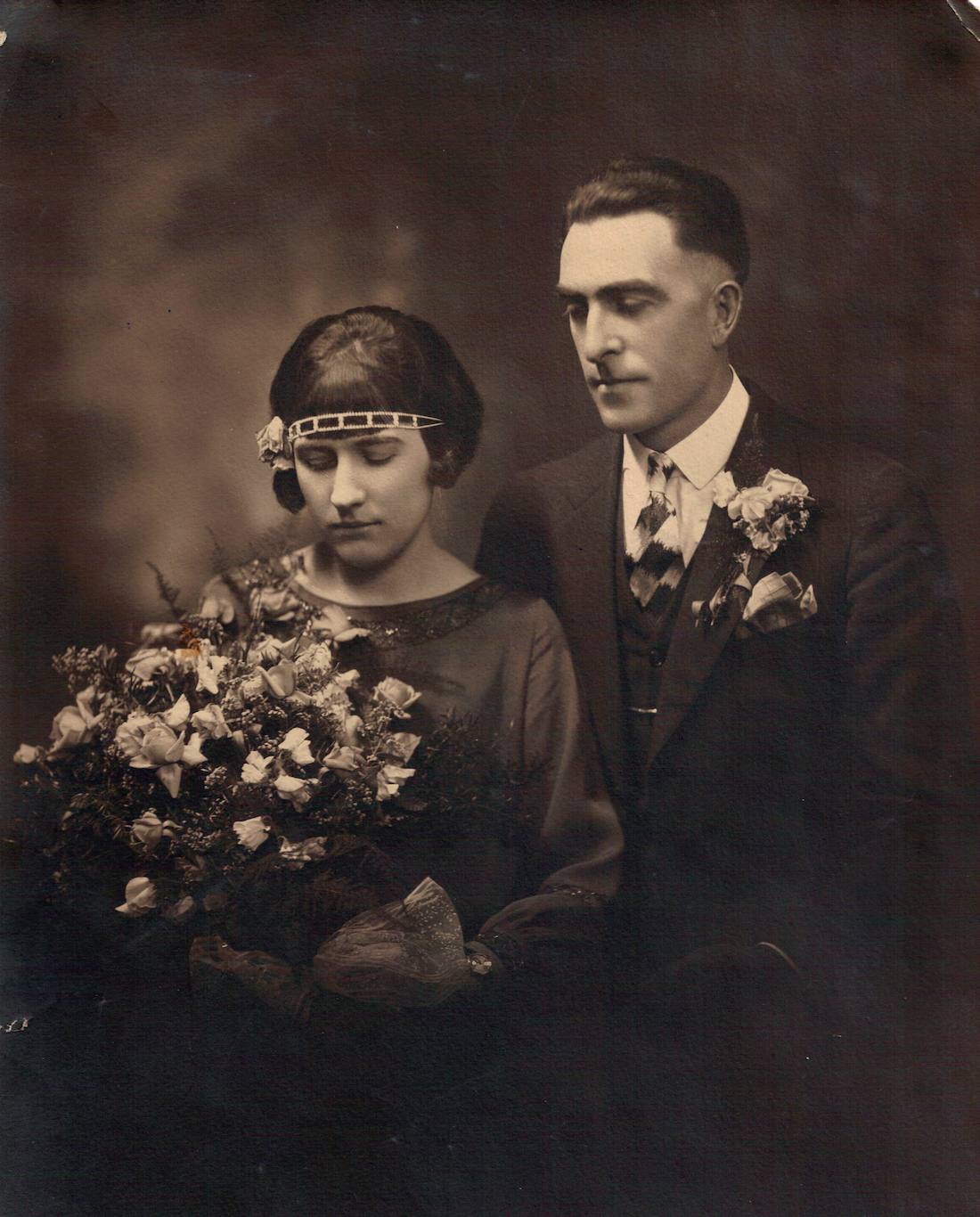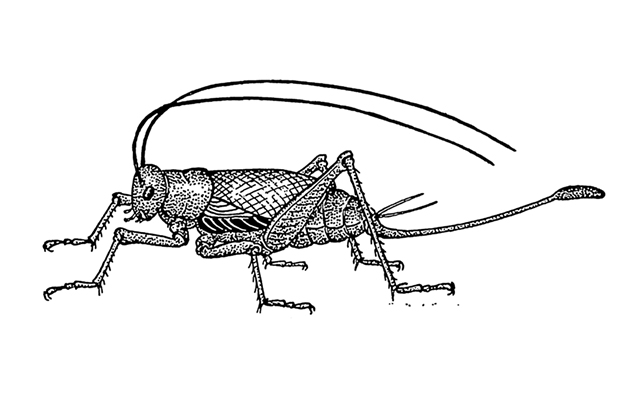jam-packed with works that had appeared
in this magazine over the previous twenty years.
It was entitled The Vivisection Mambo,
got terrific reviews at Kirkus and Booklist,
and promptly dropped into the void,
that dark graveyard of terrific
books that never made it.
Still, we've never given up our role as the doyen
of modern verse, have continued to publish
what we believe are some of the best poems online.
Here's a catch-up - - -
those we've featured in the interim.

< 'The solution to pollution is not eating spiders'
--- Newspaper headlineThe solution to pollution is to stop ingesting spiders,
Just say no to the arachnida that copulate inside us,
How they pullulate and ovulate, the octopod articulate,
Auriculate, testiculate and oft times unguiculate,
The narrative of nightmare and the stuff of holy terror,
They're the creatures that convince you all your life has been an error.
So you're sicker than a parrot and you wish that you were dead?
Just you wait till they migrate and drill themselves into your head.
Creepy-crawly, creepy-crawly with a subtle sideways motion,
Some detestable detritus from the bottom of the ocean,
Something feral, fanged and furry with a flush of nasty habits,
Now they're ferreting like ferrets, now they're rabbitting like rabbits,
Now they're occupying occiputs and populating dreams...
Eating spiders isn't nearly as attractive as it seems.--- John Whitworth
From "Qualm"
Dictation Furthermore, there are occasions when
Furthermore, there are occasions when
I wish to raise the windowsill
and shout obscenities into the street,
loudly and with violence.
Of course I never do. Full stop.
Instead I offer my mistakes to be plucked out
like silver hairs by Mr. Collinson,
a small god dressed in loafers
and a double-breasted suit
who lodges in my ear all afternoon
dictating minutes of The Management Review.
But I would sooner tell youhow the sky sheds drizzle, sheer as iron filings
on a group of children shambling from school;
how I weep inside the porcelain confessionals
admitting my desire to wound, and grievously,
the hairsprayed middle manager;
how I hope to find my guardian angel
crouched inside the stationery cupboard
counting paperclips, ready to unfold
her giant wings and fly me
past the awkward fellowship of office drinks,
past desks made homely with a snapshot of the kids,
beyond the Seventh Floor executives
resplendent in their offices like cardinals,
up through stratospheres of city smog,
up into space --- the boundless silence
where she'll let me go ---
a million memos floating free,
the telephones of earth a distant memory.--- From Sunday at the Skin Launderette
Katryn Simmonds
Seren (Poetry Wales)
Dear ProfessorLet me explain my lengthy absence ---
My entire family got food poisoning,
myself included. We had eaten rotten
fish tacos, old bad cod, I've never been so
nauseous, the house wouldn't stop
spinning, wouldn't stop shuffling
its windows, I was gushing from
I'll spare you the details. And Grandma
shutting down, hallucinating, said the world
was pixilated. We rushed her to St. Mary's
on a flat tire, no spare in the trunk,
a burst of sparks as the screaming rim
scored the road like a pizza cutter.
They plugged her in, her monitor drew
neon green mountain ranges. Strange,
you'd think they'd have Internet access
there, free wi-fi, a wing in the hospital
to check one's email. Odd, too, no
connectivity back home, no electric blood
sluicing through the wires, a hitch
in the system, some inexplicable glitch,
impossible for me to get a hold of you
until now, two weeks after the due date.
l'm sorry. And sorry I missed class today,
another flat tire, stupid overturned
box of nails on the freeway, I hissed
for miles, the car listed, such a headache,
and still queasy from the tacos. Please
consider all this when grading my essay
(see attachment). Please excuse any typos
or logical fallacies, my mind has been
elsewhere: Grandma's mountains
stretched flat. Her green horizon. I want
to live forever. I want to pass your class
and graduate, get a gig, marry some hottie,
see the world, drive until my wheels
come wobbling off, and keep driving ---
but first I need to pass your class.
No pressure. Honestly. No pressure.--- David Hernandez
From Wide Awake:
Poets of Los Angeles and Beyond
©2015 Pacific Coast Poetry SeriesGo to a review of the
bookOrdinary SexIf no swan descends
in a blinding glare of plumage,
drumming the air with deafening wings,
if the earth doesn't tremble
and rivers don't tumble uphill,
if my mother's crystal
Vase doesn't shatter
and no extinct species are sighted anew
and leaves of the city trees don't applaud
as you Zing me to the moon, starry tesseræ
cascading down my shoulders,
if we stay right here
on our aging Simmons Beautyrest,
dumped into the sag in the middle,
that's okay.
You don't need to strew rose petals
in my bath or set a band of Votive candles
flickering around the rim.
You don't need to invent a thrilling
new position, two dragonflies
mating on the wing. Honey,
you don't even have to wash up after work.
A little sweat and sunscreen
won't bother me.
Take off your boots, babe,
swing your thigh over mine. I like it
when you do the same old thing
in the same old way.
And then a few kisses, easy, loose,
like the ones we've been
kissing for a hundred years.- - - Ellen Bass
Go to a review of the
book
Regret
(Poem on the Death of Elvis the Cat)Elvis won't eat. He's twenty years old. Mostly he sleeps,
staggers off to the litter box, drags himself back - - -fur like a thrift-store suit, rumpled, bagged at the knees.
You've been avoiding the trip to the vet - - - the news will be bad."For Christ's sake," your wife says on the third day.
"I can't stand it." So you grab an old sweater, wrap upthe shivering cat, put sweater and cat in a cardboard box.
He hates the car, still has enough chi left to yowl the whole way - - -he knows where he's going, knows he's not coming back.
The office is bright, toxic with Lysol, sharp funk of animal fear.You hold the box on your lap. Elvis papoosed in your sweater,
panting, eyes dull. Whatever love is, it's not what you feelfor this cat - - - sprayer, shredder of chairs, backhanded gift
from a breakup - - - your ex moved in with her girlfriend,no pets allowed. Two seats down a woman shushes
her mutt: it yaps at the end of its leash. Then it's your turn."Good night, old boy," the vet says. The needle slips in.
Elvis sighs, his flat skull in your hand. He purrs for a secondor two and then stops. You can't love what you don't love;
you try to be kind. But the sweater is Brooks Brothers,cashmere. You've had it since grad school - - - it's black
and still fits. Not really thinking, you lift the dead cat,unwrap the sweater, lay the lank purse of bones
back in its box. You leave him there at the vet's - - -no little backyard service for you. You drive home.
Your wife says, "That's it?" and you nod.There's not much that keeps you awake anymore:
the future all rumor and smoke, a bus that never comesuntil it comes - - - the past already published, out of your hands.
So what do you do with it, then? Shoved into the closet,moth-reamed, way in the back. Crouched in its dark corner:
the thing that still fits. The thing you can't throw away.--- Jon Loomis
©2015 Poetry Daily
My Brother is BusyMy brother is busy packing for jail. I sit on his bed and watch him
set aside a blank notebook, pen, copy of Genet's "Thief's Journal."
Jean Genet did some of his best writing in prison, he tells me.I want to say, he was a glamorous playwright in Paris, France,
you are a drug addict-sometime singer in Bakersfield, California.
Jean-Paul Sartre will not be coming to your rescue. Instead,I say, I'm not sure they'll let you have that fountain pen.
The romance of jail, of positive spins, has captured my brother
in the June-addled San Joaquin Valley. He's hoping that this timethe judge will sentence him to a prison rehab unit. I'm done caring
what he hopes, or so I think, only here to pick up what's left of mine
that he hasn't pawned, then return to school. My first summeron parole from stomach pumpings, bail bondsmen, high dramas
in the house on Occidental Street. I can write with anything. He removes
the pen from the stack. I can write in dust, I can write with my mind.Here is the part where the sister laughs, where she may later wish
for a chance at revision. We don't know it, but this is our last conversation.
My brother will be dead in two weeks, I'll be in some other citywhen he overdoses on downers as our parents drink double
vodka tonics in another room. I'll get a call at 2 am. Someone
will say, This is your mama speaking. And I'll answer, Who?--- Candace Pearson
From Wide Awake:
Poets of Los Angeles and Beyond
©2015 Pacific Coast Poetry Series
When Tony Hoagland Says
My Maternal Instincts
Are ImpressiveI think maybe he means my plumage
does not distract from my talons.How in the requiem of my ovaries
I am building a barn full of pianos.Or perhaps my fears still wear
their oversized clothing?I don't know what he means.
Some people will eat anything.I wish I dreamed of wild horses
instead of hamsters.When Persephone fell down
off the bathroom counterI tried all night to bring her back.
She had six babies to feed,each smaller than my pinky.
So even after her sister Lunachewed off half her face, I let
those blind squirming erasers sucktheir dead mother until I had to
pluck them off one by one by one.--- Jenny Browne © 2015
The Boston Review
Dumpsters
Patti WhiteI met her in the Public Library, reading Sir Thomas Wyatt,
the Elder, the Renaissance court poet you know, you know the one
about the deer, they flee from me, like how tourists scurry away
only in the poem it's the beggars, the lovers, the deer
who run after having fed, the deer refuse to return to his hand,
it's a sad story.An educated woman, and a clean one: she bathes in the restroom
on the third floor; when she begs on 42nd Street she's a queen,
a rock in the current, impeccable, correct, her open palm
smooth and dry as a hen's egg. Her knitted cap covers hair
I've combed out with my own fingers. She comes to meafter rush hour, and we walk like in the movies, down alleys;
she recites poetry, she wears moonlight and neon like a crown,
and we eat whenever we please. Sometimes I find an empty dumpster,
not one near a restaurant but a business dumpster, one that held
shredded printouts, canceled checks and memos, fax paper, forms,
and we climb inside, concealed, sheltered, and make love. Oncewhen she was angry, she crawled out of the dumpster and beat
on the metal with an abandoned chair she found outside, thunder
whispers in comparison; it was the sound of absolute hell, utter
destruction; my head hurt for a week. I know I'm not the manof her dreams. I'm King Lear on the heath, crazy, cold with
despair; I rave; my clothes are shabby. With my kingdom
divided, there are no more decisions to make, and my mind
gets weak. She is a scholar; I am afraid of books. I rave
and she listens to me, comforts me, tells me my daughter
will save me one day and I believe her.--- From Tackle Box
©2002 Ashinga PressGood GirlLook at you, sitting there being good.
After two years you're still dying for a cigarette.
And not drinking on weekdays, who thought that one up?
Don't you want to run to the corner right now
for a fifth of vodka and have it with cranberry juice
and a nice lemon slice, wouldn't the backyard
that you're so sick of staring out into
look better then, the tidy yard your landlord tends
day and night --- the fence with its fresh coat of paint,
the ash-free barbeque, the patio swept clean of small twigs ---
don't you want to mess it all up, to roll around
like a dog in his flowerbeds? Aren't you a dog anyway,
always groveling for love and begging to be petted?
You ought to get into the garbage and lick the insides
of the can, the greasy wrappers, the picked-over bones,
you ought to drive your snout into the coffee grounds.
Ah, coffee! Why not gulp some down with four cigarettes
and then blast naked into the streets, and leap on the first
beautiful man you find? The words Ruin me, haven't they
been jailed in your throat for forty years, isn't it time
you set them loose in slutty dresses and torn fishnets
to totter around in five-inch heels and slutty mascara?
Sure it's time. You've rolled over long enough.
Forty, forty-one. At the end of all this
there's one lousy biscuit, and it tastes like dirt.
So get going. Listen: they're howling for you now:
up and down the block your neighbors' dogs
burst into frenzied barking and won't shut up.--- ©2011 Kim Addonizio
In Our StairwellIn the evenings,
a bunch of youths
dwelt in our stairwell.
They drank vodka,
pissed up the wall
and jeered humankind.
Every morning, as I went to work,
there was an empty bottle
on a landing,
and it smelt of urine.Once I said to the youngsters,
"You may drink vodka if you wish,
but it would be better if you
refrained from urinating here,
it's not a nice thing to do.
As for humankind,
we should not laugh at it
but mourn it."Since that day
the youths in our stairwell
drink vodka,
lament bitterly over humankind
and exhaust themselves
abstaining from urination.
They would rather die than take a piss.- - - Gennady Alexeyev
Translation ©1987 Anatoly Kudryavitsky
From A Night in the Nabokov HotelDeath(having lost)death(having lost)put on his universe
and yawned:it looks like rain
(they've played for timelessness
with chips of when)
that's yours;i guess
you'll have to loan me pain
to take the hearse,
see you again.Love(having found)wound up such pretty toys
as themselves could not know:
the earth tinily whirls;
while daisies grow
(and boys and girls
have whispered thus and so)
and girls with boys
to bed will go,--- From 50 Poems
E. E. Cummings
Isabel's Corrido
Para IsabelFrancisca said: Marry my sister so she can stay in the country.
I had nothing else to do. I was twenty-three and always cold, skidding
in cigarette-coupon boots from lamppost to lamppost through January
in Wisconsin. Francisca and lsabel washed bedsheels at the hotel,
sweating in the humidity of the laundry room, conspiring in Spanish.I met her the next day. Isabel was nineteen, from a village where the elders
spoke the language of the Aztecs. She would smile whenever the ice pellets
of English clattered around her head. When the justice of the peace said
You may kiss the bride, our lips brushed for the first and only time.
The borrowed ring was too small, jammed into my knuckle.
There were snapshots of the wedding and champagne in plastic cups.Francisca said: The snapshots will be proof for Immigration.
We heard rumors of the interview: they would ask me the color
of her underwear. They would ask her who rode on top.
We invented answers and rehearsed our lines. We flipped through
Immigration forms at the kitchen table the way other couples
shuffled cards for gin rummy. After every hand, l'd deal again.Isabel would say: Quiero ver las fotos. She wanted to see the pictures
of a wedding that happened but did not happen, her face inexplicably
happy, me hoisting a green bottle, dizzy after half a cup of champagne.Francisco said: She can sing corridos, songs of love and revolution
from the land of Zapata. All night Isabel sang corridos in a barroom
where no one understood a word. I was the bouncer and her husband,
so I hushed the squabbling drunks, who blinked like tortoises in the sun.Her boyfriend and his beer cans never understood why she married me.
Once he kicked the front door down, and the blast shook the house
as if a hand grenade detonated in the hallway. When the cops arrived,
I was the translator, watching the sergeant watching her, the inscrutable
squaw from every Western he had ever seen, bare feet and long black hair.We lived behind a broken door. We lived in a city hidden from the city.
When her headaches began, no one called a doctor. When she disappeared for days, no one called the police. When we rehearsed the questions
for Immigration. Isabel would squint and smile. Quiero ver las fotos.
she would say. When the interview was canceled, like a play on opening night
shut down when the actors are too drunk to take the stage. After she left,
I found her crayon drawing of a bluebird tacked to the bedroom wall.I left too and did not think of Isabel until the night Francisca called to say:
Your wife is dead. Something was growing in her brain. I imagined my wife
who was not my wife, who never slept beside me, sleeping in the ground,
Wondered if my name was carved into the cross above her hand, no epitaph
and no corrido, another ghost in a riot of ghosts evaporating from the skin
of dead Mexicans who staggered for days without water through the desert.Thirty years ago, a girl from the land of Zapata kissed me once
on the lips and died with my name nailed to hers like a broken door.
I kept a snapshot of the wedding: yesterday it washed ashore on my desk.There was a conspiracy to commit a crime. This is my confession: I'd do it again.
--- From Poetry of Resistance
Martín Espada
©2016 University of Arizona PressMen as Trees, WalkingI learned early what that verse
meant, "For now we see as through a glass
darkly." My mother wouldn't buy me any
glasses because then I'd be a foureyes
maybe even play in the band like the rest
of the pansies, or like my father, polishing
his lenses, head bent, hands
before his face as if
praying, no football
hero. Teachers tired of my leaning
in from the front row, chalk dust in
my hair, begged her in notes: like the blind
man in the Bible miracle, he sees men
as trees, and trees as lime
jello. Going out for passes, I was
lost like the end of the world when
everybody running sees the sky but me.
The coach threw his hat in the dust, "Son,
have you EVER caught a pass?" I never
did, but when she gave in, let me have
my specs, it was like heaven, she even more
beautiful with wrinkles, people gross
as bears now limber as hickory, spare
as willows. And the trees, firmed up,
erect at last, were like emerald fish
with each scale whole and succinct,
as if they would never, ever drop a leaf
or a pass.--- William GreenwayTalking Big
John Bricuth We are sitting here at dinner talking big.
We are sitting here at dinner talking big.
I am between the two dullest men in the world
Across from the fattest woman I ever met.
We are talking big. Someone has just remarked
That energy equals the speed of light squared.
We nod, feeling that that is "pretty nearly correct."
I remark that the square on the hypotenuse can more
Than equal the squares on the two sides. The squares
On the two sides object. The hypotenuse over the way
Is gobbling the grits. We are talking big. The door
Opens suddenly revealing a vista that stretches
To infinity. Parenthetically, someone remarks
That a body always displaces its own weight.
I note at the end of the gallery stands a man
In a bowler and a black coat with an apple where
His head should be, with his back to me, and it is me.
I clear my throat and re (parenthetically) mark
That a body always falls of its own weight.
"whoosh-WHOOM!" Sighs the hypotenuse across,
And (godknows) she means it with all her heart.--- From Words Burnished by Music
©2004, Johns Hopkins
University Press
When I Was a Tiger
Translated by Lisa RappoportWhen I was a tiger
I hunted in the forestMy claws struck me as quite beautiful
when I tore into gazelles with themAt night I dreamt of red flesh, white teeth,
my lover's ebony eyesDuring the day I wandered, hunted, and listened
for a signal from my heartThe whole world was striped
like meCuando era tigre
[Lisa Rappoport y Sasha Ryerson]Cuando era tigre
cazaba en la selvaJuzgaba mis garras muy hermosas
cuando las usaba para atacar las gacelasLas noches soñaba en carne roja, dientes blancos,
los ojos negros de mi amorLos días caminaba, cazaba y esperaba
un señal de mi corazónTodo el mundo era rayado
como yo
RelaxBad things are going to happen.
Your tomatoes will grow a fungus
and your cat will get run over.
Someone will leave the bag with the ice cream
melting in the car and throw
your blue cashmere sweater in the dryer.
Your husband will sleep
with a girl your daughter's age, her breasts spilling
out of her blouse. Or your wife
will remember she's a lesbian
and leave you for the woman next door. The other cat ---
the one you never really liked --- will contract a disease
that requires you to pry open its feverish mouth
every four hours. Your parents will die.
No matter how many vitamins you take,
how much Pilates, you'll lose your keys,
your hair, and your memory. If your daughter
doesn't plug her heart
into every live socket she passes,
you'll come home to find your son has emptied
the refrigerator, dragged it to the curb,
and called the used --- appliance store for a pickup --- drug money.
The Buddha tells a story of a woman chased by a tiger.
When she comes to a cliff she sees a sturdy vine
and climbs halfway down. But there's also a tiger below.
And two mice --- one white, one black --- scurry out
and begin to gnaw at the Vine. At this point
she notices a wild strawberry growing from a crevice.
She looks up, down, at the mice.
Then she eats the strawberry.
So here's the view, the breeze, the pulse
in your throat. Your wallet will be stolen, you'll get fat,
slip on the bathroom tiles in a foreign hotel
and crack your hip. You'll be lonely.
Oh, taste how sweet and tart
the red juice is, how the tiny seeds
crunch between your teeth.--- From Like a Beggar
Ellen Bass
©2014 Copper Canyon Press
Sonnet for My Backyard Crickets,
Two Weeks GoneWell, crickets, you're gone again
and again I haven't gotten around
to thanking you properly - - - a habit of mine.
The same thing happened with my ex-husband,
though, at least, in his case, I tried.
(He hung up on me. Soon after, he died
but that's an old story. And long.)
My plan had been to pay my debt in song,
one from me for a thousand or two from you,
each a precisely calibrated hybrid
of lamentation and nightly lullaby.
From the sound of things, it was pretty hard,
whatever let you know just where you'd find me.
I'm so sorry, crickets. I'll miss you. Thank you.--- Jacqueline Osherow
© 2016 Antioch Review
Olives"Dead people don't like olives,"
I told my partners in eighth grade
dancing class, who never listened
as we fox-trotted, one-two, one-two.The dead people I often consulted
nodded their skulls in unison
while I flung my black velvet cape
over my shoulders and glowered
from deep-set, burning eyes,walking the city streets, alone at fifteen,
crazy for cheerleaders and poems.At Hamden High football games, girls
in short pleated skirts
pranced and kicked, and I longed
for their memorable thighs.
They were friendly --- poets were mascots ---
but never listened when I told them
that dead people didn't like olives.Instead the poet, wearing his cape,
continued to prowl in solitude
intoning inscrutable stanzas
as halfbacks and tackles
made out, Friday nights after football,
on sofas in dark-walled rec rooms
with magnanimous cheerleaders.But, decades later, when the dead
have stopped blathering
about olives, obese halfbacks wheeze
upstairs to sleep beside cheerleaders
waiting for hip replacements,
while a lascivious, doddering poet,
his burning eyes deep-set
in wrinkles, cavorts with their daughters.--- Donald Hall
©2006 Poetry MagazineBean Soup
Or a Legume MiscellanyNobody there is that doesn't love a bean.
If not the royal Navy bean, then the wax bean,
the soybean, the green bean, the black bean -- the
pot is large, it contains multitudes -- white bean,
pink bean, small red bean, the lowly pinto, the
lovely lentil -- let the lamp affix its bean -- or
the walnut-shaped garbanzo, large lima bean, baby lima,
(A reunion of the Bean families is here assembled),
the cranberry bean, white kidney bean, northern bean,
or their cracked cousins: green split pea, yellow
split pea, and ol' blackeye. A lineup
of likely legumes. Gather ye bean-pods
while ye may. Go and catch a falling bean
and if you catch one, let me know.
A man and a woman are one. A man and a woman
and a bean are one, or two, or three.The beans I mean, no one has seen them made
or heard them made, but at supper-time
we find them there. Come live with me,
and eat some beans and we will love
within our means. One could do worse
than be an eater of beans.Shall I compare thee to a summer's bean?
Thou art more lovely and more temperate.
Had we but world enough, and time,
this coyness, Lady, were no crime.
But, at my back, I always hear
a pot of beans bubbling near.Mark but this bean, and mark in this,
how little that which thou deny'st me is.
An aged bean is but a paltry thing.
I must lie down where all ladders start,
in the foul rag-and-bean shop of the heart.
O my love is like a red, red bean,
that's newly picked in June:
O my love is like a pinto bean,
that's truly cooked at noon.So much depends upon a red kidney
bean. You might ask, Do I dare
to eat a bean? Dry beans can harm no one.
They remind us of home sweet home,
home on the range,
home where the heart is.
Without expecting anything in return,
they give us protein, zip, and gas.
Add what you will -- onion, tomatoes, red
pepper, chili powder, juice of lemon,
salt & pepper to taste. Add ham
hocks, bring to a boil, simmer slowly.
Call your friends, serve with
panache, crackers, and green salad.How do I cook them? Let me count the ways --
boiling, steaming, frying, baking.
And if these verses may thee move,
Sweet Lady, come live with me
and be my love. And if this fare
you disapprove, come live with me
and please be my cook.
















